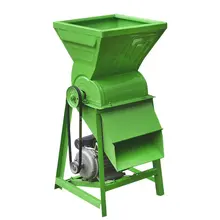poultry farm cages
Dec . 13, 2024 13:36 Back to list
poultry farm cages
The Importance of Poultry Farm Cages in Modern Agriculture
Poultry farming plays a crucial role in the global agricultural landscape, providing a significant source of protein through eggs and meat. As the demand for poultry products continues to rise, farmers are adopting various methods to enhance productivity while ensuring the welfare of their animals. One such method involves the use of poultry farm cages, which have become an integral part of modern poultry operations.
Understanding Poultry Farm Cages
Poultry farm cages are specialized enclosures designed to house birds, particularly laying hens and broilers. These cages are constructed from metal or durable plastic materials, allowing for easy cleaning and maintenance. They come in various designs, including battery cages, enriched cages, and free-range systems, each catering to specific needs and farming practices.
The primary purpose of these cages is to optimize space and improve chicken management. By housing birds in controlled environments, farmers can monitor their health, regulate feeding schedules, and keep track of egg production more effectively. Moreover, cages can significantly reduce the risk of diseases spreading among birds, which is a common challenge in traditional poultry farming.
Advantages of Using Poultry Farm Cages
1. Increased Production Efficiency
One of the standout benefits of poultry farm cages is their capacity to enhance productivity. Caged systems allow farmers to maximize the number of birds per square foot, leading to higher yields without requiring extensive land use. This intensive farming approach enables producers to meet the growing consumer demand for poultry products efficiently.
2
. Improved Animal HealthPoultry cages facilitate better management practices that contribute to the overall health of the birds. With controlled environments, farmers can ensure ideal conditions regarding temperature, light, and airflow, reducing stress among the birds. Additionally, the separation of individual birds minimizes the risk of transmitting diseases, thereby leading to healthier flocks and lowered mortality rates.
3. Enhanced Egg Quality
poultry farm cages

For laying hens, the design of poultry cages can significantly impact egg production and quality. Enriched cage systems, which provide additional space and amenities such as nesting materials, allow hens to exhibit natural behaviors. These enhancements can lead to better egg quality, which is crucial in meeting market standards and consumer preferences.
4. Better Waste Management
Managing waste in poultry farming is a significant concern for both environmental and operational reasons. Poultry cages simplify waste collection and management, such as litter and droppings, which can be promptly removed from the enclosures. This efficiency reduces the risk of contamination and helps maintain a clean living environment for the birds.
Addressing Welfare Concerns
While there are numerous advantages to using poultry farm cages, it is essential to consider the welfare of the birds. Critics of caged systems have raised concerns about the potential for restricted movement and natural behaviors. In response, many producers are transitioning to enriched cages, which offer more space and resources for the birds to engage in natural behaviors such as nesting and perching.
Furthermore, regulations and standards regarding animal welfare are continuously evolving. Countries and organizations are working together to establish guidelines that ensure poultry farming practices prioritize animal welfare while still allowing for productivity and efficiency. These developments indicate a growing recognition of the need to balance economic viability with responsibility towards animal care.
The Future of Poultry Farming
As the global population continues to grow, and the demand for poultry products increases, the poultry farming industry faces the challenge of scaling operations sustainably. Poultry farm cages present a valuable solution, enabling farmers to produce enough food while minimizing land use and preserving animal health.
Advancements in technology, such as automated feeding systems and climate control, will further enhance the efficiency of cage systems. The integration of smart farming practices will allow farmers to monitor bird health and productivity in real time, leading to more informed decision-making.
In conclusion, poultry farm cages represent an essential aspect of modern poultry farming, promoting increased productivity and better animal health management. By addressing welfare concerns and adapting to new standards, the poultry industry can continue to thrive while satisfying consumer demand and prioritizing the well-being of its birds. As we look towards the future, the evolution of poultry farming practices will undoubtedly shape the way we produce food for generations to come.
-
Hot Sale 24 & 18 Door Rabbit Cages - Premium Breeding Solutions
NewsJul.25,2025
-
Automatic Feeding Line System Pan Feeder Nipple Drinker - Anping County Yize Metal Products Co., Ltd.
NewsJul.21,2025
-
Automatic Feeding Line System Pan Feeder Nipple Drinker - Anping County Yize Metal Products Co., Ltd.
NewsJul.21,2025
-
Automatic Feeding Line System - Anping Yize | Precision & Nipple
NewsJul.21,2025
-
Automatic Feeding Line System - Anping Yize | Precision & Nipple
NewsJul.21,2025
-
Automatic Feeding Line System-Anping County Yize Metal Products Co., Ltd.|Efficient Feed Distribution&Customized Animal Farming Solutions
NewsJul.21,2025






